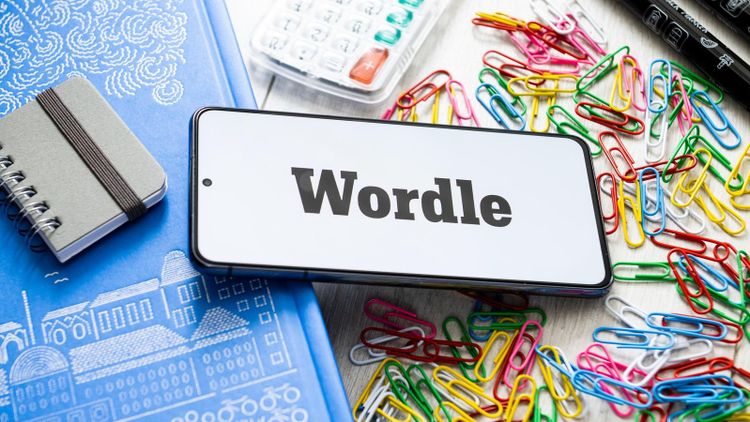Today's 'Wordle' #1032 Hints, Clues And Answer For Tuesday, April ...

How to solve today's Wordle.
SOPA Images/LightRocket via Getty ImagesLooking for Monday’s Wordle hints, clues and answer? You can find them here:
MORE FROM FORBESToday's 'Wordle' #1031 Hints, Clues And Answer For Monday, April 15thBy Erik Kain
It’s Tuesday! It’s also my brother’s birthday so happy birthday, oh brother of mine! Lots of April birthdays. Then lots of June birthdays. I can’t believe how close we are to summer. Winter will soon become a distant dream.
For now, let’s bask in spring’s warm embrace and do this Wordle!
How To Solve Today’s WordleThe Hint: Stabby stab stab.
The Clue: Today’s Wordle has far more consonants than vowels.
Okay, spoilers below!
.
.
.
The Answer:
Today's Wordle
Screenshot: Erik Kain Wordle AnalysisEvery day I check Wordle Bot to see how I did. You can check your Wordles with Wordle Bot right here.
Can you solve today’s phrase?
Today’s Wordle wasn’t too difficult, though I found myself on Guess #3 with a lot of very similar words to choose from. Things started off swell with crate narrowing down my options to just 61 words. Wordle Bot didn’t like my second guess, boink, which only slashed that number to 5. I picked shank because I figured it eliminated the most words, and lucky for me it was right!
Competitive Wordle ScoreI get 1 point for guessing in three but I tied the Bot so zero points there. I’ll take a point!
How To Play Competitive WordleGuessing in 1 is worth 3 points; guessing in 2 is worth 2 points; guessing in 3 is worth 1 point; guessing in 4 is worth 0 points; guessing in 5 is -1 points; guessing in 6 is -2 points and missing the Wordle is -3 points.
If you beat your opponent you get 1 point. If you tie, you get 0 points. And if you lose to your opponent, you get -1 point. Add it up to get your score. Keep a daily running score or just play for a new score each day.
Today’s Wordle EtymologyThe word "shank" has its origins in Old English, specifically from the word "sceanca" or "scanca", which means "leg" or "shin". It is related to similar words in other Germanic languages such as Dutch "schenkel" (meaning "shin, leg") and German "Schenkel" (also meaning "leg"). These words likely stem from a Proto-Germanic root *skankon-.
The word "shank" has evolved in modern English to refer not only to a part of the leg but also to any long, slender part of an object, like the shank of a screw, which resembles a leg in shape. The use of "shank" in the sense of a homemade knife found in prisons ("to shank", meaning to stab with such a knife) is an extension of this, from the notion of the knife having a long, thin blade.
Be sure to check out my blog for my daily Wordle and Strands guides as well as all my other writing about TV shows, streaming guides, movie reviews, video game coverage and much more. Thanks for stopping by!
Follow me on Twitter. Check out my website.









































